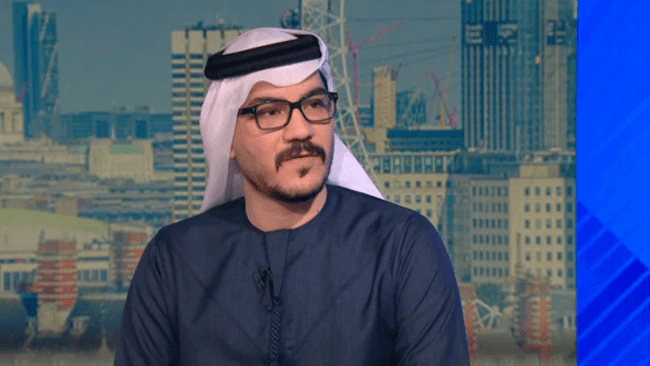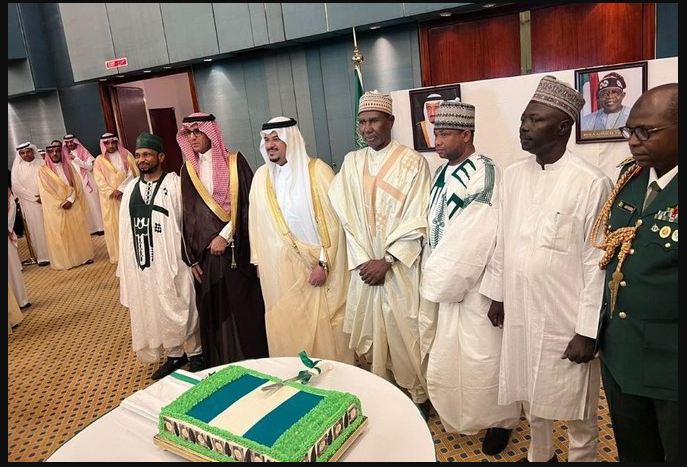After Kashmir Attacks, Emirati Analyst Rips London’s Tolerance of Jihadist Groups
The invocation of ancient Hindu wisdom was interpreted by many as a gesture of solidarity with Indian sentiments in the wake of the Kashmir attack.
In the wake of the deadly April 22 Pahalgam terror attack in India’s Jammu and Kashmir region, Emirati political scientist Amjad Taha sparked international attention with a strongly worded critique of what he calls the West’s “complacency” toward Islamist extremist networks operating under the guise of humanitarianism.
Taha, a noted Middle East analyst and vocal critic of the Muslim Brotherhood, posted a pointed tweet accusing both British and Indian systems of failing to confront what he described as “Islamist jihadist gangs.” He specifically named the Muslim Brotherhood and questioned the legitimacy of some UK-based Islamic charities, including Islamic Relief Worldwide, which is headquartered in London.
“In the UK, they are convicted of raping girls. In India, they carry out terrorist attacks, like the Pahalgam Terror Attack,” Taha wrote in the tweet that quickly went viral. “Clearly, they cannot be considered civilized, neither in the East nor the West.”
The reference to the Pahalgam attack pertains to the April 22 in the Kashmir Valley, which led 26 tourists dead, and intensified tensions between India and Pakistan. The Resistance Force (TRF), a Lashkar-e-Taiba offshoot has formally claimed responsibility. Indian intelligence sources have held Pakistan Establishment responsible for sponsoring cross-border terrorism, prompting renewed calls for international scrutiny.
Taha’s statement ties the recent violence to broader networks of ideological radicalism that he believes have been enabled by Western governments—particularly the United Kingdom. He accused British authorities of turning a blind eye to extremist elements operating within their own borders.
A Sharp Rebuke
In his tweet, Taha also drew parallels between the Pahalgam attack and public demonstrations in London following Hamas’s October 7, 2023, attack on Israel. “Just as they celebrated Hamas’s October 7th genocide in London, on April 22, 2025, they shamelessly cheered yet another terrorist attack,” he wrote.
He further described the proliferation of Islamist ideology in the West as a “cancer,” accusing the British government of not only ignoring it but “building it a five-star hotel.” The metaphor, which riffs on a Panchatantra fable, underscores his view that the West is indulging extremist actors at its own peril.
The invocation of ancient Hindu wisdom was interpreted by many as a gesture of solidarity with Indian sentiments in the wake of the Kashmir attack. Taha quoted the Panchatantra: “The man who feeds milk to a snake only fattens it for his own death,” adding, “London? They’re not just feeding the snake; they’re building it a five-star hotel.”
Islamic Relief and Muslim Brotherhood Allegations
Taha’s tweet revives long-standing allegations about Islamic Relief Worldwide’s alleged links to the Muslim Brotherhood—a transnational Islamist organization with roots in Egypt that many Gulf states consider a terrorist group. While Islamic Relief has denied any formal ties to the Brotherhood, scrutiny has persisted over its leadership and partnerships, especially in light of investigations in Germany and the UAE.
In a 2014 decision, the United Arab Emirates classified Islamic Relief as a terrorist organization, citing ideological affiliations. The UK Charity Commission, however, has repeatedly cleared the organization of wrongdoing after multiple reviews, although it has acknowledged issues related to governance and social media posts by former trustees.
Western Governments in the Crosshairs
Taha’s critique taps into a growing debate within European capitals over the balance between protecting religious freedom and combating extremism. France, Austria, and Germany have all taken steps in recent years to restrict organizations they perceive as promoting Islamist ideology under charitable or religious fronts.
The UK, in contrast, has opted for a more cautious approach, favoring dialogue with Muslim civil society groups and relying on existing anti-terror legislation. Critics argue that this strategy has allowed problematic networks to flourish under the radar.
Taha’s remarks resonated with some right-leaning commentators and policymakers in the UK, who have long warned that political correctness is preventing meaningful action against extremist ideologies. However, others have condemned his rhetoric as inflammatory, risking the stigmatization of broader Muslim communities.
Broader Implications
The controversy comes at a time when Britain is grappling with its own domestic challenges linked to radicalization. In recent years, a number of high-profile terror plots have been foiled, many of them involving individuals influenced by jihadist propaganda.
Security experts say that groups like the Muslim Brotherhood are harder to tackle than violent extremist groups because they operate within legal frameworks and often present themselves as part of the civil society fabric.
Delhi’s Growing Frustration
In India, Taha’s comments have been widely shared by government-aligned media and political figures who see them as validation of Delhi’s longstanding concerns about the global footprint of Islamist extremism. The Indian government has consistently criticized Pakistan for harboring terror networks and has called for international cooperation to dismantle them.
New Delhi has also expressed frustration with what it sees as a lack of global accountability for extremist financing and ideology exportation.
A Divisive Voice or a Needed Provocation?
Amjad Taha is no stranger to controversy. As an outspoken media personality, he has built a reputation for calling out Islamist groups and highlighting what he describes as Western hypocrisy in dealing with extremism.
His critics accuse him of conflating political Islam with terrorism and of fueling Islamophobia. His supporters argue that his blunt assessments are necessary in a world that often chooses comfort over confrontation.
Whether one agrees or disagrees with his tone, Taha’s comments have reignited a difficult and necessary conversation: Can liberal democracies confront ideological extremism without compromising their values—or are they, as he warns, nurturing the very forces that seek to undermine them?



